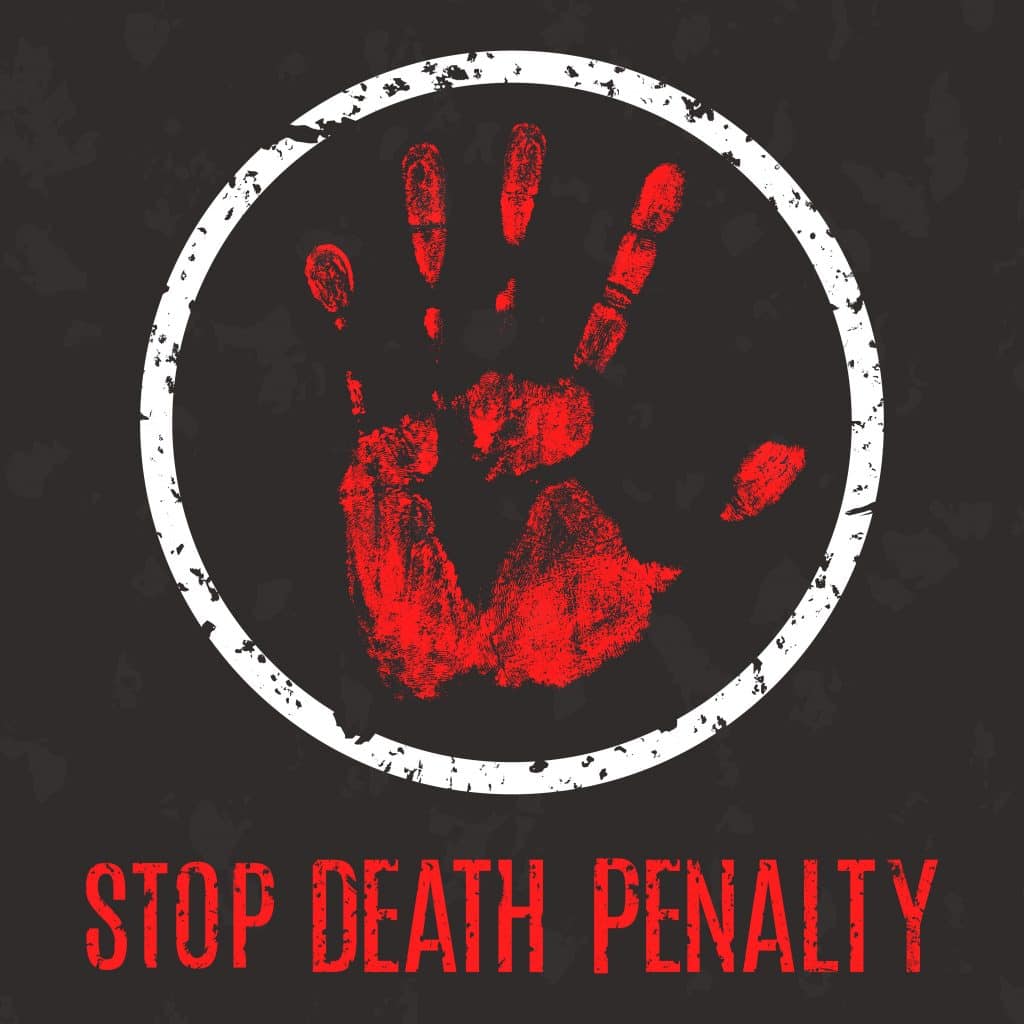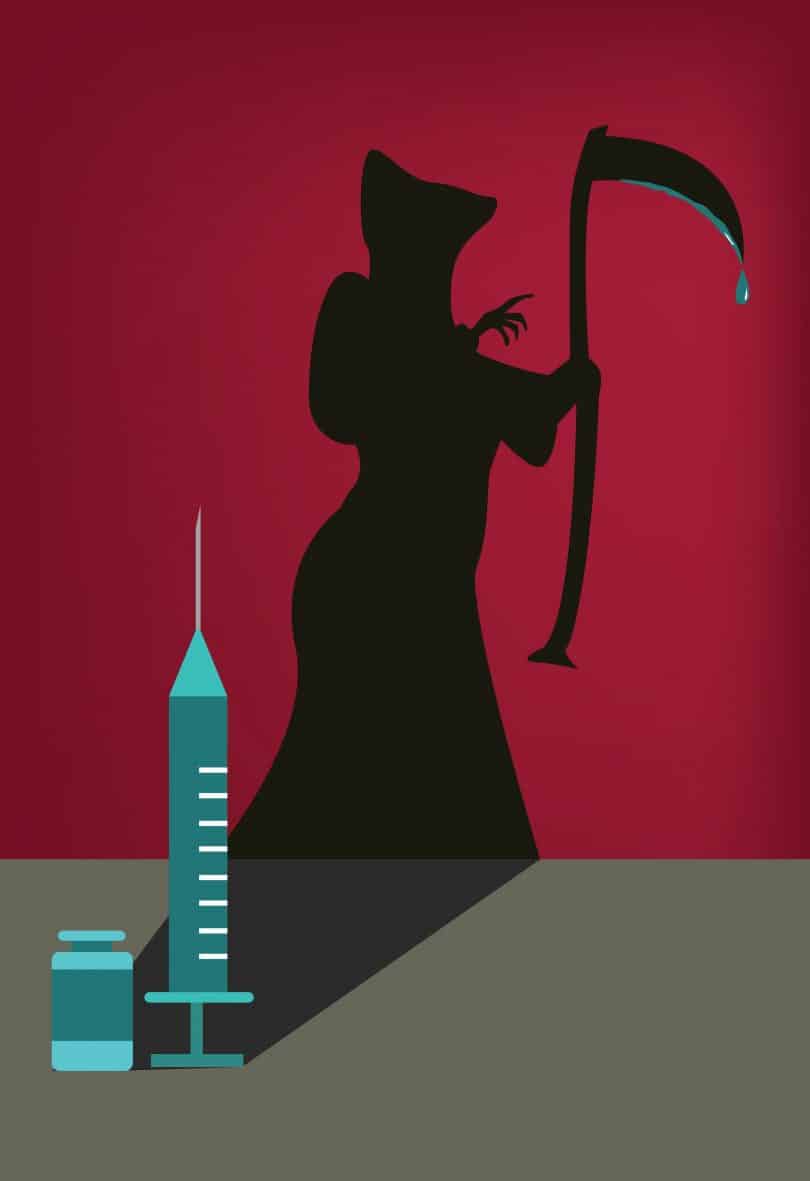The death penalty for drugs always existed in some countries; but as some places loosen restrictions, others have gotten harsher. This is seen in a rise in global executions for drug crimes in 2022. Check out what the numbers are of these executions, related to cannabis and other drugs.
Executions for drugs 2022
Harm Reduction International (self-reported NGO which has consultative status with the United Nations Economic and Social Council, and which works in the general space of harm reduction) put out the Death Penalty for Drug Offenses: Global Overview 2022. The report goes over how many executions took place over drugs in the world. A reality to such reporting, is that many countries with death penalty policies, aren’t always the best at reporting to international bodies. However, this compilation of drug death info, does give us a look at the international landscape concerning such deaths.
According to the report, there are 35 countries that use the death penalty for drug infractions; though many do draw lines between crimes. Getting caught with a small amount of some kinds of drugs might be met with lighter punishments in some places; while the larger crimes like selling, producing, and trafficking might incur an execution. It also depends on the drug in question.
For 2022, the report doesn’t have a specific number, but gives the statistic that 285+ people lost their lives to such executions. It also says that along with the active executions, that 303+ people were sentenced to death in 2022 from 18 different countries, which is a 28% increase from the previous year. Globally, the report states that there are currently 3,700+ people on death row globally for drug offenses.
Welcome, welcome! Sign up for the Cannadelics Weekly Newsletter to keep updated, and for awesome promotions on weed buds, vapes and other smoking equipment, edibles, cannabinoids (like HHC), amanita mushroom extracts, and too much more to name. We’ve got it, come get it!
Apart from confirmed executions (that make up 285), there are six countries, according to the report, where it’s expected that executions took place, but with no official documentation. Meaning the 285 is a base number, and likely just a part of the real number. Countries where there isn’t precise certainty include: Iran, Saudi Arabia, Singapore, China, North Korea, and Vietnam.
How does this compare to last year?
2021 was interesting, and might be a showing of how Corona slowed down everything; including executions. That year, less countries were cited for drug death penalties, making a decade-low in confirmed countries. For example, in 2021, Saudi Arabia stopped executions temporarily for drugs. Despite this, plenty of drug-related executions still happened in that year.
According to 2021 data on global executions for drug issues, 131 took place; done by only some of the 35 countries that allow executions for these crimes. The Penalty For Drug Offences: Global Overview 2021 report states that in 2021, at least 237 people were sentenced to death for drug crimes, from at least 16 nations. The report estimated that 1/10 of drug death sentences were given to foreign nationals.
Though the numbers are never exact, (given how many countries don’t report incidences), the 2022 numbers are 118% higher than 2021 numbers, showing a growth in these deaths from 2021 to 2022. To show a more unsettling trajectory, the 2022 numbers are 850% higher than 2020 drug death penalty numbers.
That year, The Death Penalty for Drug Offences: Global Overview 2020 states the number of countries with death penalty policies for drugs was 35 (same as now). According to the report there were 30+ deaths, from only three countries that had confirmed kills in this way. Also that year, 213+ people were sentenced to death for drugs; though a total of around 3,000+ were on death row for such crimes.
Why the increase?
The exact workings of some of these countries are unknown, so why they do what they do can’t be answered. But there are a few places where the uptick makes sense based on what we do know about the countries. For example, Saudi Arabia might have had a short moratorium on these executions in 2021, but it was expected to resume this behavior, and it did. In fact, the country went on to have its biggest mass execution in its own history, which took place in March of 2022.
Likewise, Singapore actually made waves in defending its drug execution policies, a topic that came up in 2021. It highlighted this idea in February of 2022, sentencing multiple drug traffickers to death. And though the initial ones from February were stayed due to intervention by families and civil society; the country simply went on to sentence more people to death for drugs soon after.
Iran is another country warned about by civil society groups, as a risk for increased executions. Meaning increased use of the death penalty for drugs, wasn’t unforeseen. Iran changed its policy in 2017 to raise the amount of drugs necessary to incur an execution, from 5kg to 50kg. At the time of the legal change, its thought approximately 5,000 people went from sure death, to something less intense. Clearly the country doesn’t currently have an intention to formally stop the behavior.
If Corona had an influence; then it also makes sense that as regular industry and life go back to normal, so do the punishment of crimes. Corona might have slowed down global executions for drug crimes, in the same way that many things were slowed down by everyone staying home. However, with the pandemic behind us, it could be that its not just about getting back to norms, but making up for lost time as well.
How cool is this in the societies where it happens?
I think it’s safe to say that the majority of normal residents are never happy with the existence of a death penalty for drug crimes. But it hasn’t always been easy for the public to do much about it, or even say anything about it. However, with the increase in global executions for drug crimes, so has come an increase in a voice against them.
Singapore is a good example, where protests began in reaction to these actions. This kind of protest activity is not common to the country, which imposes huge limitations on the public in terms of gatherings of this nature, often using extreme intimidation of participants. However, this time around, the public wasn’t stopped, both in person, or online. Transformative Justice Collective started giving the public more information on those sentenced with execution, to humanize them to the public. The group also orchestrates the ‘Stop the Killings’ campaign.
Roads like this are expected to be bumpy, and the government didn’t exactly welcome it. Human rights activists in Singapore were interrogated as potential offenders under the Public Order Act 2009. Even lawyers for death row victims often faced disciplinary actions or were ordered to pay large sums for failed cases. The government didn’t hide its intentions to kill drug offenders, and publicly responded to critics like civil society groups, and a UN Special Procedure worker.

People in Iran (mainly family members of those sentenced to execution) resorted to peaceful protests in light of increasing executions. Many were arrested and detained in the process. The Bangladesh government was similarly unkind to those promoting human rights in the country; and actually cancelled Odhikar’s NGO license, which took away the ability of the only group which was monitoring and reporting on the use of capital punishment in Bangladesh.
Right now, as some countries drop the use of death penalties for drugs specifically, the number of global executions for drug crimes somehow only increases. And all this despite a UN General Assembly Resolution which pushes for a moratorium on death penalties (though not a complete abolition apparently). As of 2022, 125 countries have signed onto this moratorium, yet even so, global executions for drug crimes account for 30%+ of all worldwide executions.
Conclusion
We are not all on the same playing field in this world. We’re born into different places, with wildly different policies, that create different living experiences. What a person in one place faces for one action, might be a complete turnaround from what a comparable person in a different place, faces. Right now, if you’re living in the wrong place, you’ll want to be very careful about your involvement with drugs. Know the laws, know your danger level. And please be careful out there.
Hello readers! Welcome to Cannadelics.com; an independent news site bringing you the best in cannabis and hallucinogen reporting. Head our way whenever possible to stay in-the-loop with everything going on; and subscribe to the Cannadelics Weekly Newsletter, to ensure you’re never late to get a story.









